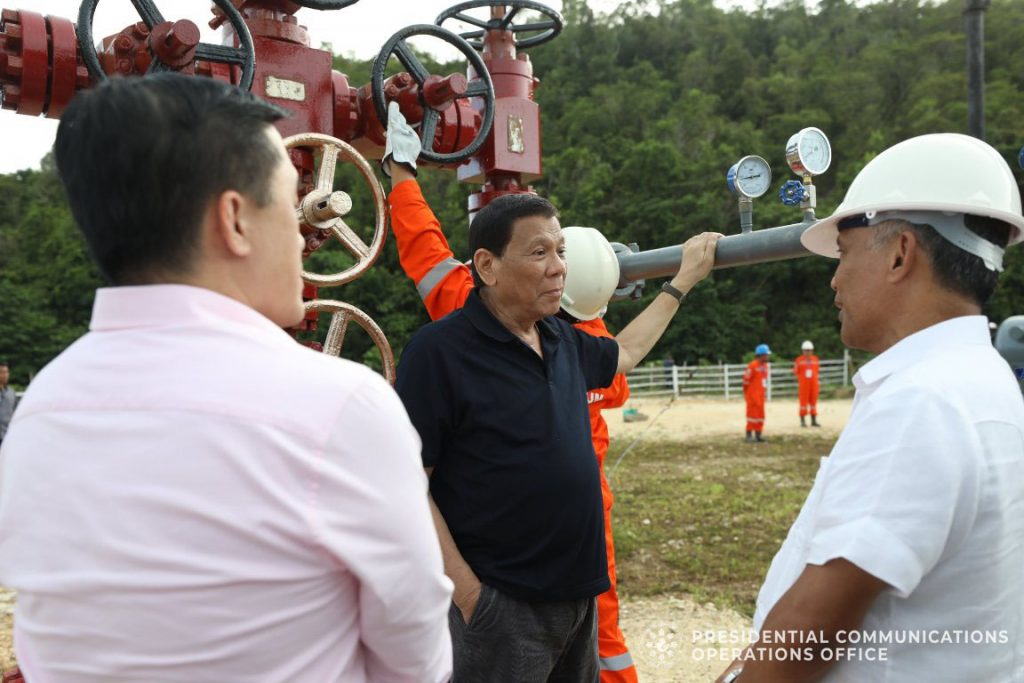
President Rodrigo Roa Duterte discusses matters with Energy Secretary Alfonso Cusi on the sidelines of the Alegria Oil Field oil and gas production ceremonial commencement in Alegria, Cebu on May 19, 2018. KARL NORMAN ALONZO/PRESIDENTIAL PHOTO
To usher “significant economic benefits” to the country, President Rodrigo Duterte has lifted the nine-year moratorium on new mining deals and allowed the government to enter into new agreements subject to existing laws.
In Executive Order (EO) No. 130 which was signed on April 14, Duterte lifted the ban on new mining agreements imposed by his predecessor Benigno Aquino III in 2012.
The ban imposed by Aquino prohibited mineral collection in protected areas categorized and established under the National Integrated Protected Areas System, prime agricultural lands, tourism development areas and other critical areas and island ecosystems.
Duterte’s order said only 5 percent of the Philippines’s mineral resources had been utilized.
“The government may enter into new mineral agreements, subject to compliance with the Philippine Mining Act of 1995 and other applicable laws, rules, and regulations,” Duterte’s EO read.
The president also allowed the Department of Environment and Natural Resources (DENR) to continue to grant and issue exploration permits.
“The DENR shall likewise undertake a review of existing mining contracts and agreements for possible renegotiation,” he said.
He said the Tax Reform for Acceleration and Inclusion law had doubled the excise tax on minerals, mineral production and quarry resources from 2 percent to 4 percent.
“In addition to ushering significant economic benefits in the country, the mining industry can support various government projects, such as the Build, Build, Build program, by providing raw materials for the construction and development of other industries,” Duterte said.
The Philippine Nickel Industry Association (PNIA) welcomed Duterte’s decision to repeal the ban.
“The (PNIA…appreciates the government’s recognition of the industry’s role in economic recovery and development,” it said in a statement.
“PNIA has always maintained the industry’s contribution to countryside development by providing employment opportunities and livelihood, and ensuring the sustainability of our host communities,” it added. John Ezekiel J. Hirro